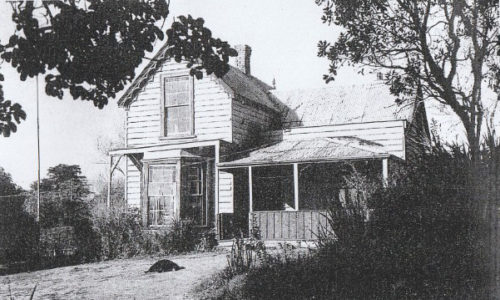Local historian Alan La Roche continues his series marking the district’s 170th anniversary last year and the countdown to the 175th celebrations.
When the first settlers arrived in Auckland, many expected to employ servants.
The officers of the Fencibles, ministers of religion and major land owners all had servants. But in 1847 when the Fencibles arrived in Howick, there was a great shortage of domestic servants. Many in Auckland thought that the Fencible women and their daughters or Maori would fill this role. Some demanded wages of up to £30, even though they could not iron clothes or cook. Most immigrants came to New Zealand for a better life, proper wages and time off each week as well as a bed and food.
Colonel Peacocke of Cook Street, Howick had a governess and two Portuguese servants. Governor Sir George Grey had one domestic servant. The Rev Vicesimus Lush complained about his servant Bessy Sainsbury who came with the family from England but was homesick and did not adjust to colonial duties.
She was only 15 years old but demanded one shilling a day which Lush claimed was exorbitant. Bessy was dismissed and replaced by Sarah Trimmer, Mary Heath then Sarah Mellon. They had to light the fires to boil water, cook meals, clean the house and were on call until after dinner dishes had been put away. They slept in the attic. Servants were expected to attend church with the family, but sit in the free back pews with employers in the front pews.
Mrs Jane Lynch looked after Fencible Frances Conway in Rodney Street, producing meals for two shillings a week and doing his washing for one shilling a week after his wife died leaving him with two young children to look after.
Single Fencible William Flowers had a housekeeper even though his wages and pension were low. Ann Canty washed clothes and helped with John Roche’s children after his wife died. Good servants were paid £20 to £30 a year by 1866.
One of the worst employers owned a general store and hotel in Howick whose housemaid from 11 years of age until she was 19, cooked, cleaned, and served the family for no wages but had a bed and meals provided. She was only given half a day off per year, on Christmas Day afternoon and eventually left to get married. Dr Bacot in Bleak House was generous to his servant with the same privileges as given to his children.

Larger homesteads such as Bleak House in Bleak House Road had many domestic and agricultural workers. They employed Maori girls in the kitchen. Most of the domestic and agricultural workers were given meals and a bed but no wages. Only the lead ploughman received a wage. Immigration officials brought in more domestic servants but many could see a better life if they married, which they did. It took many years before domestic and agricultural workers received fair treatment and wages.
Hemi Pepene, Pakuranga’s most successful farmer, sold his wheat crop to Australian goldfields for a better price than Partington’s flourmill in Auckland. This Maori had several Maori farm workers as well as a European servant which was unusual in the 1850s.
By the 1880s, domestic servants, cooks, housemaids and dairymaids were so hard to get that the Government advertised in Britain, offering free passages, plus wages from £25 to £50 a year, with regular time off work for their own pleasure and to make their own clothes.
Today, household servants deserve adequate wages and living conditions.
Alan La Roche is a Howick historian







